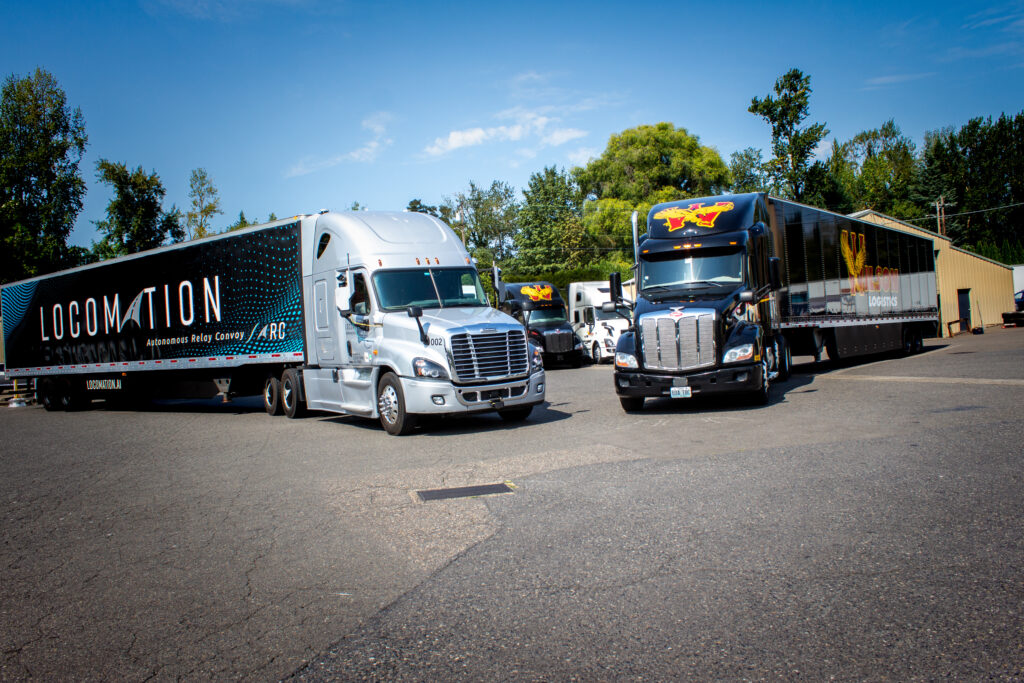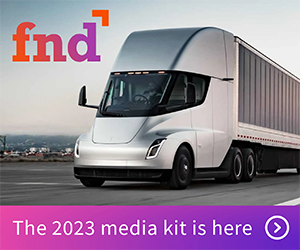Locomation & Wilson Logistics Perform Regular Autonomous Freight Deliveries

Initial Phase Included Daily Long Haul, Revenue-Earning Deliveries Over Two Straight Weeks
Locomation, the world’s first trucking technology platform to offer human-guided autonomous convoying, today announced the successful completion of its first-ever on-road pilot program transporting commercial freight. The pilot, first announced at the Truckload Carriers Association annual conference in March this year, is the result of a partnership with Wilson Logistics, a leading family-owned transportation logistics company based in Springfield, MO. It is a significant step for both companies as they pursue the most direct path to delivering commercially-viable autonomous technology to the trucking industry.
In this phase of the deployment, two Locomation trucks, hauling Wilson Logistics trailers and freight, were deployed as an Autonomous Relay Convoy (ARCTM) on a 420 mile long route that stretched from Portland, OR to Nampa, ID along I-84, which has some of the most challenging road conditions in terms of curvatures, grades, and wind gusts. ARCTM is Locomation’s unique, proprietary approach to autonomous trucking. ARCTM allows one driver to pilot a lead truck equipped with technology augmentation while a follower truck operates in tandem through Locomation’s fully autonomous system. This allows the follower driver to log off and rest during this time. Each ARCTM segment is engineered for maximum yield and utilization by Locomation’s business operations team.
“The successful kickoff of this commercial agreement with Wilson Logistics is a significant milestone for our teams,” said Dr. Çetin Meriçli, CEO and Co-Founder of Locomation. “Despite the threat of COVID-19, we delivered real world results for the most advanced, efficient, and safest solution to make commercial autonomous trucking a reality. Most importantly, the pilot strongly proved that our autonomous technology can be integrated seamlessly and deployed within a real trucking operation in a sustained fashion.”
Having seen the route for the first time during the initial, 8 day long pilot phase, Locomotion’s ARCTM covered approximately 3400 miles and operated autonomously roughly half of the time, delivering 14 commercial loads. At all times during the pilot, each truck was staffed with a trained driver and a safety engineer tasked with monitoring vehicle and AV system performance, collecting more than two dozen key performance indicators vital to ensuring the successful deployment of this autonomous vehicle technology.
“This test pilot was critical for Wilson Logistics because it proved the true commercial viability of Locomation’s ARCTM technology,” explained Darrel Wilson, Chairman and CEO of Wilson Logistics. “For our team, it’s the perfect combination of safety improvements, increased asset utilization, reduced cost per mile – and most importantly, a better driver experience.”
At full commercialization Locomation’s autonomous vehicle technology is expected to produce an estimated 30% reduction in operating cost per mile, including 8% reduction in fuel consumption, and remove over 40 metric tons of carbon dioxide from the air per convoy annually.
Wilson Logistics risk management consultancy Aon also participated in the pilot program in order to assess a range of metrics related to safety.
“We congratulate Wilson Logistics and Locomation on a successful initial test phase,” said Mark Brockinton, CEO of Aon’s Transportation and Logistics Practice. “We are thrilled with the performance of the pilot and its safe, on-time deliveries each day. We think Locomation’s platform points to a future for freight carriers where risk factors related to accident and loss are significantly lower.”
The Locomation-Wilson Logistics agreement will initially operate more than 124 ARCTM equipped tractors in two-truck convoys on 11 ARCTM segments throughout the United States at peak implementation. The next phase in the partnership anticipates delivering more than 1,000 two-truck convoys representing more than 2,000 ARC-equipped trucks operating on more than 68 ARCTM segments nationwide.
Category: AUTONOMOUS, Connected Fleet News, Electric Vehicles, Featured, Fleet Tracking, General Update, Green, News, Tech Talk, Vehicles









